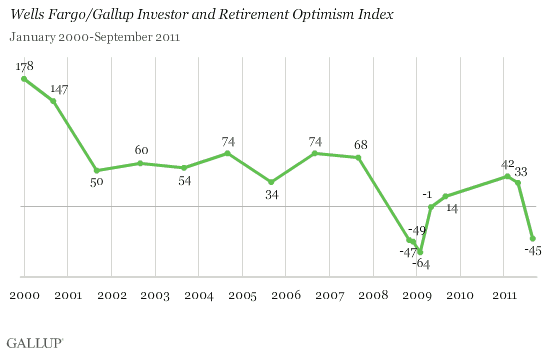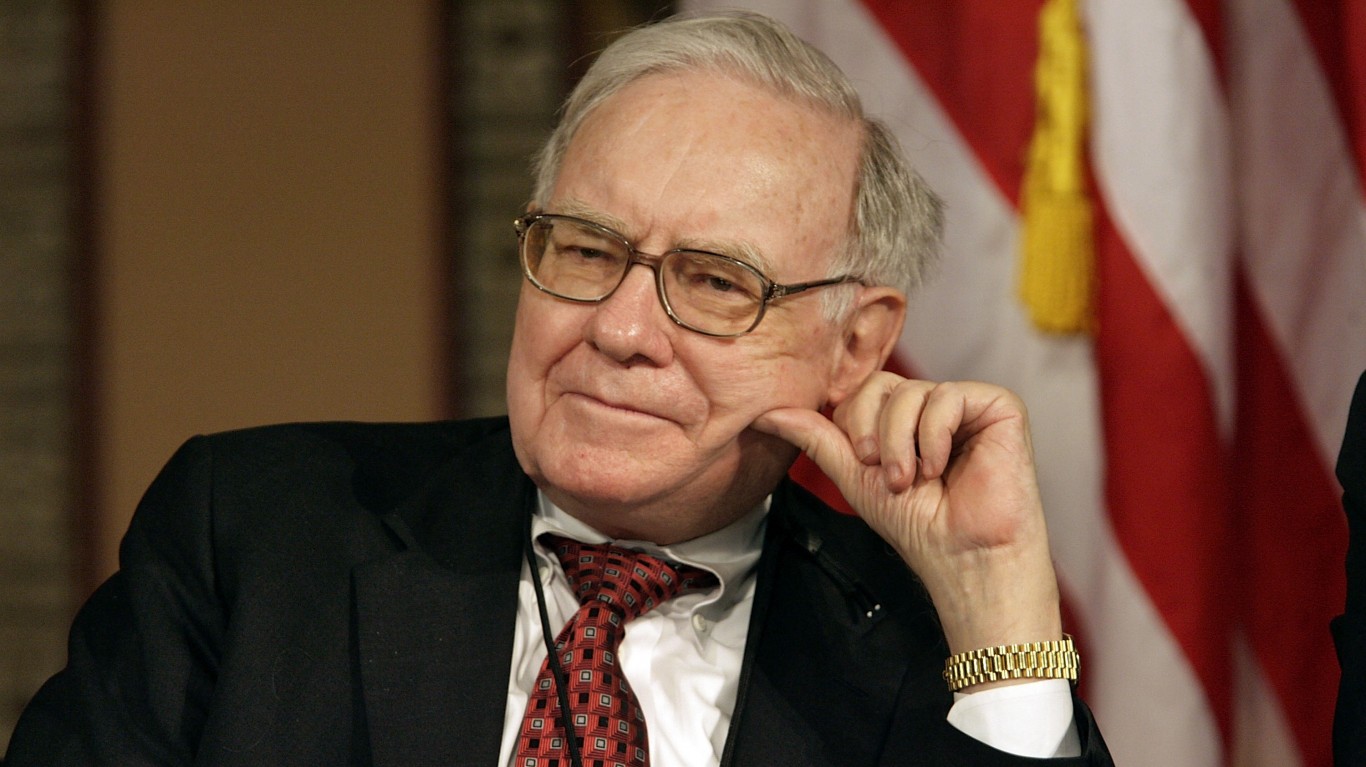 Whatever faith investors regained in the stock market between the huge sell-off that caused lows in the spring of 2009 and the recovery that peaked this last July is gone. Is it any wonder? Between rumors that lift stocks by double digits in a matter of minutes and high frequency trades which have an average latency of as low as 126 microseconds, American investors think they are “gamed” each trading day. The winners of these games are experts who know more than they do, or can an act more quickly on knowledge that only the professionals have.
Whatever faith investors regained in the stock market between the huge sell-off that caused lows in the spring of 2009 and the recovery that peaked this last July is gone. Is it any wonder? Between rumors that lift stocks by double digits in a matter of minutes and high frequency trades which have an average latency of as low as 126 microseconds, American investors think they are “gamed” each trading day. The winners of these games are experts who know more than they do, or can an act more quickly on knowledge that only the professionals have.
A new Gallup poll reports, “U.S. investor optimism declined in September, as the Wells Fargo/Gallup Investor and Retirement Optimism Index plunged to -45 from +33 in May after +42 in February. The index is now back at the financial crisis levels of late 2008.” Gallup lists as the two primary reasons for this change 1) the weak economy and unemployment and 2) market volatility. The issues are much more complicated than that.
Last week, the price of the shares of Sprint-Nextel (NASDAQ: S) fell 20% in minutes. The company made important comments to a very small number of people “Do we need to access the capital markets? Yes,” Sprint CFO Joe Euteneuer told a conference. “We want to make sure we had flexibility of when we access the markets.” Sprint needs to raise money, in other words. People at the conference probably made trades based on the news within moments. Sprint did not make a public announcement of the plan. A typical individual shareholder of Sprint watched shares lose a fifth of their value but could not understand what had happened to cause this sudden drop in share price. This was hardly an isolated incident. Rumors of a buy-out of Yahoo! (NASDAQ: YHOO) have whipsawed shares up and down over the last several weeks. At the same time, the SEC began the early stages of a set of reviews because some stock prices in other takeover targets moved before offers were made public
The Wall Street Journal reports on program trades each week in its Friday edition. Many investors probably do not know the extent to which stocks change hands based on “decisions” made by machines. Last week, 33.4% of shares traded on the NYSE were through program trades. That was 802.0 million program shares traded per day. Firms like Goldman Sachs (NYSE: GS), Morgan Stanley (NYSE: MS), Merrill Lynch, and JP Morgan (NYSE: JPM) made many of those transactions. The firms may have lost money,but, the individual investor still believes these firms have a large number of tools that he does not.
Concerns about inside information and the use of complex systems to trade shares have existed for many years. When markets rise rapidly, most individual investors can live with the imbalance between their modest tools and those of Wall St. The markets are not in a rapid rise now. It is one thing, many investors believe, to be “gamed” when most traders make money. It is another when markets are in free fall on many days and individual investors believe that the big institutions can avoid the losses of those sell-offs because the field is tilted.
Methodology: The Wells Fargo/Gallup Investor and Retirement Optimism Index results are based on questions asked on the Gallup Daily tracking survey of a random sample of 958 U.S. adults having investable assets of $10,000 or more from Sept. 1-11, 2011.
Douglas A. McIntyre
Are You Ahead, or Behind on Retirement? (sponsor)
If you’re one of the over 4 Million Americans set to retire this year, you may want to pay attention.
Finding a financial advisor who puts your interest first can be the difference between a rich retirement and barely getting by, and today it’s easier than ever. SmartAsset’s free tool matches you with up to three fiduciary financial advisors that serve your area in minutes. Each advisor has been carefully vetted, and must act in your best interests. Start your search now.
Don’t waste another minute; get started right here and help your retirement dreams become a retirement reality.
Thank you for reading! Have some feedback for us?
Contact the 24/7 Wall St. editorial team.





